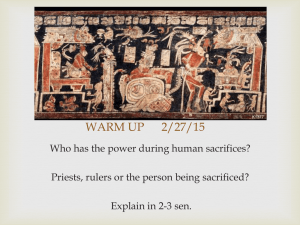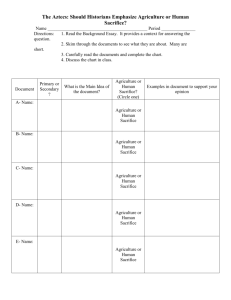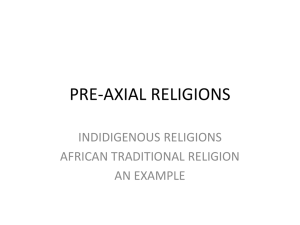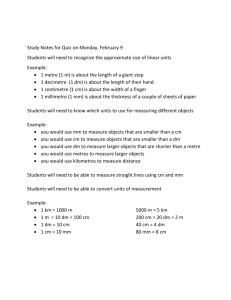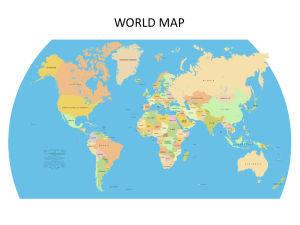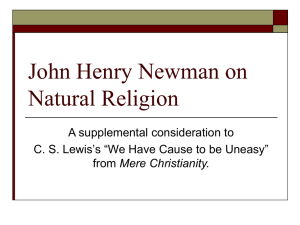The Rig Veda
advertisement
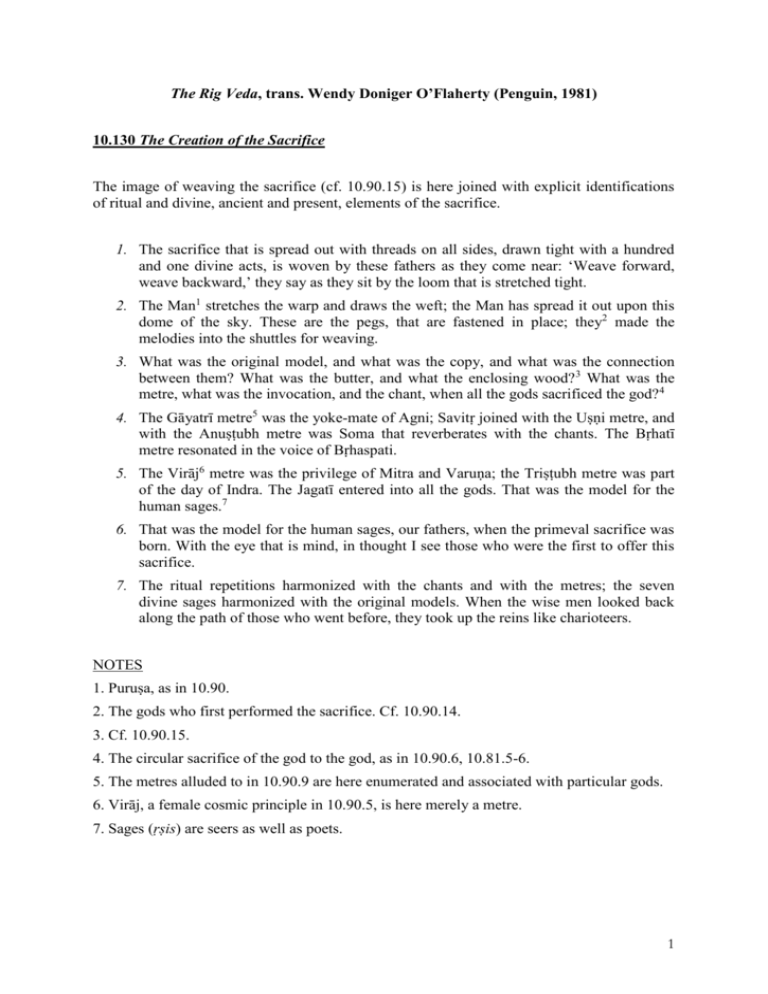
The Rig Veda, trans. Wendy Doniger O’Flaherty (Penguin, 1981) 10.130 The Creation of the Sacrifice The image of weaving the sacrifice (cf. 10.90.15) is here joined with explicit identifications of ritual and divine, ancient and present, elements of the sacrifice. 1. The sacrifice that is spread out with threads on all sides, drawn tight with a hundred and one divine acts, is woven by these fathers as they come near: ‘Weave forward, weave backward,’ they say as they sit by the loom that is stretched tight. 2. The Man1 stretches the warp and draws the weft; the Man has spread it out upon this dome of the sky. These are the pegs, that are fastened in place; they2 made the melodies into the shuttles for weaving. 3. What was the original model, and what was the copy, and what was the connection between them? What was the butter, and what the enclosing wood? 3 What was the metre, what was the invocation, and the chant, when all the gods sacrificed the god? 4 4. The Gāyatrī metre5 was the yoke-mate of Agni; Savitṛ joined with the Uṣṇi metre, and with the Anuṣṭubh metre was Soma that reverberates with the chants. The Bṛhatī metre resonated in the voice of Bṛhaspati. 5. The Virāj6 metre was the privilege of Mitra and Varuṇa; the Triṣṭubh metre was part of the day of Indra. The Jagatī entered into all the gods. That was the model for the human sages.7 6. That was the model for the human sages, our fathers, when the primeval sacrifice was born. With the eye that is mind, in thought I see those who were the first to offer this sacrifice. 7. The ritual repetitions harmonized with the chants and with the metres; the seven divine sages harmonized with the original models. When the wise men looked back along the path of those who went before, they took up the reins like charioteers. NOTES 1. Puruṣa, as in 10.90. 2. The gods who first performed the sacrifice. Cf. 10.90.14. 3. Cf. 10.90.15. 4. The circular sacrifice of the god to the god, as in 10.90.6, 10.81.5-6. 5. The metres alluded to in 10.90.9 are here enumerated and associated with particular gods. 6. Virāj, a female cosmic principle in 10.90.5, is here merely a metre. 7. Sages (ṛṣis) are seers as well as poets. 1 10.190 Cosmic Heat 1 1. Order2 and truth were born from heat as it blazed up. From that was born night; from that heat was born the billowy ocean. 2. From the billowy ocean was born the year, that arranges days and nights, ruling over all that blinks its eyes.3 3. The Arranger has set in their proper place the sun and moon, the sky and the earth, the middle realm of space, and finally the sunlight. NOTES 1. Tapas, the heat produced by the ritual activity of the priest, is equated with the primeval erotic or ascetic heat of the Creator. 2. Ṛta, cosmic order. Truth (satya) is, like ṛta, also a term for reality. 3. For blinking as a sign of a living creature, cf. 10.121.3. 10.81-2 The All-Maker (Viśvakarman) These two hymns to the artisan of the gods speculate on the mysterious period of the ancient past, now veiled from the priests of the present (10.81.1 and 10.82.7). The Creator is imagined concretely as a sculptor (10.81.2), a smith (10.81.3), or as a woodcutter or carpenter (10.81.4), but also as the primeval sacrificer and victim of the sacrifice (10.81.1, 10.81.5-6, 10.82.1), assisted by the seven sages (10.81.4, 10.82.2 and 10.82.4). Finally, he is identified with the one who propped apart sky and earth (10.81.2-4, 10.82), the one who inspires thought (10.81.7) and answers questions (10.82) but is himself beyond understanding (10.82.5 and 7). 10.81 1. The sage, our father, who took his place as priest of the oblation and offered all these worlds as oblation, seeking riches through prayer, he entered those who were to come later, concealing those who went before.1 2. What was the base,2 what sort of raw matter was there, and precisely how was it done, when the All-Maker, casting his eye on all, created the earth and revealed the sky in its glory? 3. With eyes on all sides and mouths on all sides, with arms on all sides and feet on all sides, the One God created the sky and the earth, fanning them with his arms.3 4. What was the wood and what was the tree from which they4 carved the sky and the earth? You deep thinkers, ask yourselves in your own hearts, what base did he stand on when he set up the worlds? 2 5. Those forms of yours that are highest, those that are lowest, and those that are in the middle, O All-Maker, help your friends to recognize them in the oblation. You who follow your own laws, sacrifice your body yourself, making it grow great.5 6. All-Maker, grown great through the oblation, sacrifice the earth and sky yourself. Let other men go astray all around;6 let us here have a rich and generous patron. 7. The All-Maker, the lord of sacred speech, swift as thought – we will call to him today to help us in the contest. Let him who is the maker of good things and is gentle to everyone rejoice in all our invocations and help us. 10.82 1. The Father of the Eye,7 who is wise in his heart, created as butter8 these two worlds that bent low. As soon as their ends had been made fast in the east, at that moment sky and earth moved far apart. 2. The All-Maker is vast in mind and vast in strength. He is the one who forms, who sets in order, and who is the highest image. Their9 prayers together with the drink they have offered give them joy there where, they say, the One dwells beyond the seven sages. 3. Our father, who created and set in order and knows all forms, all worlds, who all alone gave names to the gods, he is the one to whom all other creatures come to ask questions. 4. To him the ancient sages together sacrificed riches, like the throngs of singers who together made these things that have been created, when the realm of light was still immersed in the realm without light.10 5. That which is beyond the sky and beyond this earth, beyond the gods and the Asuras 11 – what was that first embryo that the waters received, where all the gods together saw it?12 6. He was the one whom the waters received as the first embryo, when all the gods came together. On the navel of the Unborn was set the One on whom all creatures rest.13 7. You cannot find him who created these creatures; another14 has come between you. Those who recite the hymns are glutted with the pleasures of life;15 they wander about wrapped up in mist and stammering nonsense. NOTES 1. The early stages of creation remain in shadow, perhaps because the All-Maker destroyed them by sacrificing them and then prayed anew for the materials of creation. 2. The question, to which verse 4 returns, is the problem of what the primeval sculptor stood on before there was anything created. 3. Though he has arms on all sides, here the anthropomorphic smith has two arms and ‘wings’, probably the feathers used to fan the forge. Cf. 9.112.2. 4. The assistants of the Creator, perhaps the seven sages (cf. 10.82.2 and 10.82.4). 3 5. Here and in the next verse, the Creator is both the sacrificer and the sacrificial victim, as Puruṣa is in 10.90.16. 6. Here, and in 10.82.7, the enemies of the poet in the contest are mocked. 7. That is, creator of the sun. 8. Butter is symbolic of primeval chaotic matter, the seed of the creator, and the sacrificial oblation. The creator churns chaos. Cf. 4.58 for butter. 9. The wishes and sacrifices of the first sacrificers, the pious dead, are fulfilled in heaven. 10. Day and night separated, like sky and earth. 11. The Asuras are the ancient dark divinities, at first the elder brothers and then the enemies of the gods (Devas). 12. For the embryo, cf. 10.121.1 and 10.121.7. 13. The navel is the centre of the wheel; cf. 1.164.13, 1.164.48. 14. Another creator has come between you, or, more likely (for the noun is neuter), another thing – ignorance – has come inside you as an obstacle; or a bad priest (such as are mentioned in the second half of the verse) has obscured the way to the gods. 15. A double meaning here: the priests are glutted with the life they have stolen from the sacrificial beast and with the high life of luxury they have bought with their undeserved fees. Here the poet speaks of his priestly enemies, who do not understand the meaning of the sacrifice. The mist is both the miasma of their clouded minds and the smoke from the useless sacrifice. 4
